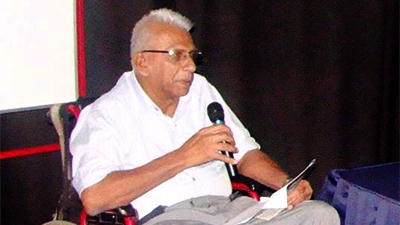North East Local Service Improvement Project (NELSIP) was approved in 2010 to improve the delivery of services by the local authorities in the northern and eastern provinces in a responsive and accountable manner. The project has passed the midterm life line. While results achieved to date are significant and appreciated by stakeholders, one of the grievances identified during the project implementation is the problem of addressing the needs of persons with disabilities.
The World Bank stakeholder consultation revisited existing policy documents related to disability together with key stakeholders to find ways of integrating and improving livelihoods of persons with disabilities living in the Eastern Province.
The Challenge
Current views of disability recognize that it is influenced by personal factors (such as age and gender), social factors (such as community perceptions), cultural factors (such as superstitions) and natural and built environmental factors (such as infrastructure).
The challenge of supporting and including this marginalized group of people in the country’s mainstream is a national priority according to Mahinda Chinthana. Many policy and public level initiatives are in progress–island-wide. NELSIP implemented by the Ministry of Economic Development is committed to creating an enabling environment to engage and empower the disabled people in the eastern province first as a demonstrative initiative that could be replicated in other parts of the country.
World Bank Studies
The first study was titled “Disability Programs and Local Government in Sri Lanka” and carried out in October 2012. This was followed by a policy review. Based on this, two specific areas of need were identified by the study and the review. One: Vocational Training and Skills Development and the other: Health and Rehabilitation. These reports also explored the role that local authorities could play in taking responsibility for disability work in anticipation of the legislative mandate and policy directive that local government will soon be given by the government of Sri Lanka to mainstream disability in their work. The eastern province will first take steps to put these policies into practice.

